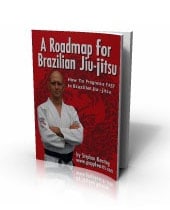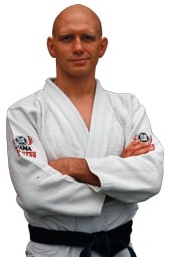Several years ago I posted excerpts from a Peter Gzowski book that took research conducted on chess grandmasters and extrapolated it to sports performance. This article was called The Mind of a Champion.
So today I want to point you in the direction of some excellent resources related to becoming an expert. None of these articles mention the martial arts, but I’m going to contend that there isn’t that much of a difference between becoming a chess grandmaster, a concert pianist, or a Brazilian jiu-jitsu black belt…
The first reference is from Scientific American. In an article (which you have to pay for now) called ‘The Expert Mind – Become Good at Anything’, the author looks at how studies on chess grandmasters have revealed how people become experts in other fields, including music, mathematics, and sports. If you are interested in the science behind becoming an expert, check out the August 2006 issue of Scientific American.
The second reference you might want to check out is the 2008 book called ‘Outliers’ by Malcom Gladwell is an absolutely fascinating read. From Bill Gates, to super-well-paid corporate lawyers, to the Beatles, this book breaks down their ascent to world class performance. This book is also primarily responsible for popularizing the so-called ‘10,000 hour rule’ which states that it takes about ten thousand hours of concerted practice to become a world-class expert at anything.
And to put it back into the context of our sport, when you add up the hours that someone has put in before they win Abu Dhabi or the Mundials you’ll find that it’s getting awfully close to ten thousand hours on the mats. So Outliers must be onto something…
Finally, if you want to check out some Malcom Gladwell before tracking down the book, check out this article on his site called ‘The Physical Genius.‘ He weaves together explorations of brain surgery, hockey mastery, and cello virtuosity in a fascinating exploration of what makes some people great at making their bodies do exactly the right thing at exactly the right time.
I’m going to leave you with a quote from that article, but first think about the best person you’ve ever rolled with. Now ask yourself if the following paragraph from The Physical Genius could apply, even a little bit, to that person…
“What sets physical geniuses apart from other people, then, is not merely being able to do something but knowing what to do–their capacity to pick up on subtle patterns that others generally miss. This is what we mean when we say that great athletes have a “feel” for the game, or that they “see” the court or the field or the ice in a special way.”
Doesn’t that sum it up well?


